
Filter News
Area of Research
- (-) Data (1)
- (-) National Security (79)
- (-) Quantum information Science (9)
- (-) Sensors and Controls (5)
- Advanced Manufacturing (34)
- Biological Systems (18)
- Biology and Environment (177)
- Biology and Soft Matter (5)
- Building Technologies (12)
- Chemical and Engineering Materials (4)
- Chemistry and Physics at Interfaces (11)
- Clean Energy (522)
- Climate and Environmental Systems (14)
- Computational Biology (6)
- Computational Chemistry (5)
- Computational Engineering (5)
- Computer Science (19)
- Earth Sciences (1)
- Electricity and Smart Grid (3)
- Energy Frontier Research Centers (14)
- Energy Sciences (5)
- Fossil Energy (3)
- Fuel Cycle Science and Technology (3)
- Functional Materials for Energy (16)
- Fusion and Fission (54)
- Fusion Energy (17)
- Geographic Information Science and Technology (3)
- Isotope Development and Production (3)
- Isotopes (35)
- Materials (433)
- Materials Characterization (2)
- Materials for Computing (36)
- Materials Synthesis from Atoms to Systems (13)
- Materials Under Extremes (12)
- Mathematics (1)
- Neutron Data Analysis and Visualization (4)
- Neutron Science (190)
- Nuclear Science and Technology (74)
- Nuclear Systems Modeling, Simulation and Validation (3)
- Nuclear Systems Technology (1)
- Quantum Condensed Matter (4)
- Reactor Technology (1)
- Renewable Energy (4)
- Supercomputing (311)
- Transportation Systems (11)
News Topics
- 3-D Printing/Advanced Manufacturing (2)
- Advanced Reactors (1)
- Artificial Intelligence (12)
- Big Data (6)
- Bioenergy (4)
- Biology (5)
- Biomedical (2)
- Biotechnology (1)
- Buildings (1)
- Chemical Sciences (2)
- Climate Change (5)
- Computer Science (25)
- Coronavirus (2)
- Cybersecurity (21)
- Decarbonization (2)
- Energy Storage (2)
- Environment (5)
- Exascale Computing (1)
- Frontier (1)
- Fusion (1)
- Grid (8)
- High-Performance Computing (4)
- Machine Learning (12)
- Materials (2)
- Materials Science (3)
- Microscopy (2)
- Nanotechnology (2)
- National Security (34)
- Neutron Science (4)
- Nuclear Energy (5)
- Partnerships (4)
- Physics (2)
- Quantum Science (10)
- Security (12)
- Simulation (1)
- Summit (2)
- Sustainable Energy (4)
- Transportation (2)
Media Contacts

Every day, hundreds of thousands of commuters across the country travel from houses, apartments and other residential spaces to commercial buildings — from offices and schools to gyms and grocery stores.
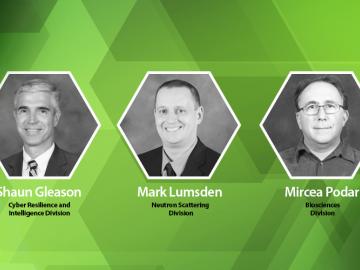
Three ORNL scientists have been elected fellows of the American Association for the Advancement of Science, or AAAS, the world’s largest general scientific society and publisher of the Science family of journals.
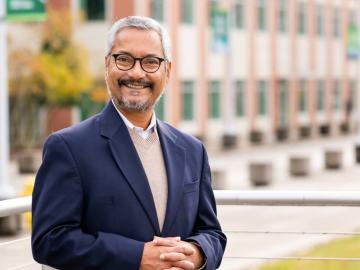
ORNL’s Budhendra “Budhu” Bhaduri has been elected a fellow of the American Association of Geographers. The honor recognizes Bhaduri as “a world leader in innovation, development and application of research in human dynamics, geographic data science, remote sensing and scalable geocomputation.”
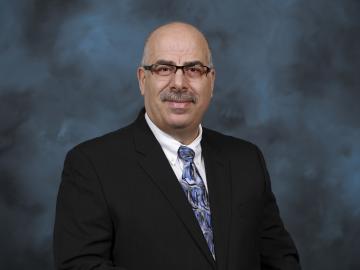
Moe Khaleel has been selected to lead the National Sciences Security Directorate, or NSSD, at the Department of Energy’s Oak Ridge National Laboratory.
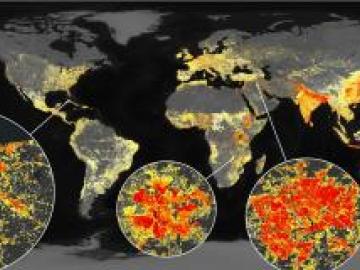
Using novel data sets and computing systems, researchers at ORNL are simulating how climate change affects the safety and security of the country.

A team of collaborators from ORNL, Google Inc., Snowflake Inc. and Ververica GmbH has tested a computing concept that could help speed up real-time processing of data that stream on mobile and other electronic devices.

Oak Ridge National Laboratory researchers have created a technology that more realistically emulates user activities to improve cyber testbeds and ultimately prevent cyberattacks.
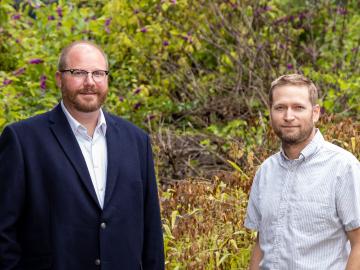
Of the $61 million recently announced by the U.S. Department of Energy for quantum information science studies, $17.5 million will fund research at DOE’s Oak Ridge National Laboratory. These projects will help build the foundation for the quantum internet, advance quantum entanglement capabilities — which involve sharing information through paired particles of light called photons — and develop next-generation quantum sensors.
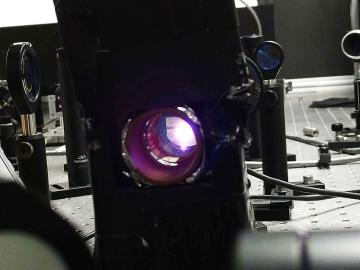
To minimize potential damage from underground oil and gas leaks, Oak Ridge National Laboratory is co-developing a quantum sensing system to detect pipeline leaks more quickly.
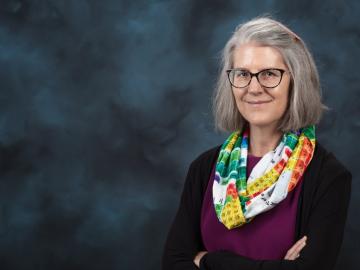
Deborah Frincke, one of the nation’s preeminent computer scientists and cybersecurity experts, serves as associate laboratory director of ORNL’s National Security Science Directorate. Credit: Carlos Jones/ORNL, U.S. Dept. of Energy


